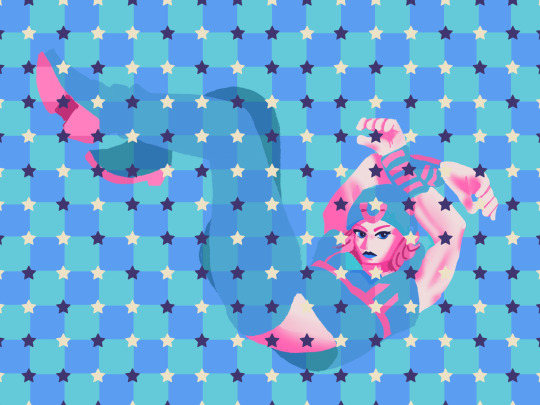#got me sick in the head
Explore tagged Tumblr posts
Text
Killing me that Mitsuba and Kou should just be two teenagers who get up to dumb shenanigans as they stumble around things they want to say to each other and awkwardly show affection
but have been cursed to be doomed by the narrative no matter what timeline
#even in the present timeline they got to be normal for a bit but look where we are now#AidaIro were sick and twisted for showing me them actually happy and friends without angst#got me sick in the head#tbhk#jshk#toilet bound hanako kun#jibaku shounen hanako kun#tbhk kou#tbhk mitsuba#kou minamoto#minamoto kou#mitsuba sousuke#sousuke mitsuba#mitsukou#jshk kou#jshk mitsuba
185 notes
·
View notes
Text

Keep thinking about that one scene in secret life
#it was so silly i've had this visualised in my head for ages#actually sick of this comic now tho the colouring made me question tf I've been doing for 10 years#anyway#the sillies#not set on any of these designs btw and Scott isn't in his band outfit BC he isn't part of it yet in the series#which is the excuse I'm using bc I haven't solidified that design yet#tag time#secret life#life series#scott smajor#smajor1995#trafficblr#jimmy solidarity#goodtimeswithscar#this probably the second comic I've ever finished ever so#IM LEARNING OK#fandumb fanart#ALSO ALSO guess where I got the death messages the
11K notes
·
View notes
Text


this is the moment that broke me
#art#twisted wonderland#twisted wonderland spoilers#twisted wonderland episode 7 spoilers#twisted wonderland book 7 spoilers#twisted wonderland episode 7 part 12 spoilers#twisted wonderland book 7 part 12 spoilers#gif warning#gifs that will drop a beat so sick that your head will come off warning#admittedly i nearly lost it thirty seconds into 7-12 because of the mohawks#but mixmaster dj riddle just absolutely destroyed me#i have got to stop playing the updates at 2 am because i genuinely woke up and had to check if i had dreamed this or not
5K notes
·
View notes
Note

What a lovely family portrait👨🏻👨🏻👦🏻🖼️

Enhanced image of A-Yuan's first sword flight.
#Modern AU WWX is a pro skateboarder who got vestibular damage after a head injury and-#-has such bad vertigo he can never skate again. But has to keep finding excuses to not reveal his affliction.#poorly drawn mdzs#mdzs#wei wuxian#lan wangji#a-yuan#ask#I honestly have no idea if A-yuan would have flown via sword before this point.#But I can absolutely see him being 1) So delighted and 2) Very Unaware of the danger of hieghts.#At the age he is - it's also likely that he just trusts that these adults will keep him safe.#This is all to say: A-yuan's danger sense is not yet developed and flying is the coolest thing that has happened to him. Maybe ever.#The discussion in the comic tags/comments about how sword flight got me thinking about how it works when someone had passengers#If using a sword requires having a goldern core - what about riders who don't?#I have to imagine it is like currents and magnets. And LWJ is the only one who is magnetized to the sword.#WWX is but a unpolarised clown on a swiftly moving object with a low friction quotient.#He's not the untamed anymore. He's the untethered. He made it through the trip through sheer force of will and hand strength.#The only equivalent I have is#He keeps refusing to get in cars/buses because he 'loves to walk'. He mourns his days of sick drops. Chenqing is his walkman.
878 notes
·
View notes
Text

★ 080 // “Wavy Checkerboard”
#jjba#jojo's bizzare adventure#steel ball run#sbr#johnny joestar#eyestrain /#motion sickness /#offerings#tools used:#clip studio paint#this was an experiment to see if you cold make this optical illusion with stars instead of dots or crosses. turns out YOU CAN.#The illusion isn't as strong because Johnny is breaking it up but you can see it. especially if you move your head or stare for a bit.#I like the colors on this one hehe#I used a Johnny figure as a model for the pose on this one.#My sister got him for me for Christmas and it was my favorite gift. <3
633 notes
·
View notes
Text

hey guys, quick question - what the fuck is their deal?
#click for quality :)#beatles#beatles fanart#john lennon#paul mccartney#j + p#the adventures of Princess Paulie and The Emperor of the Universe !#they make me physically unwell to think about actually like what the fuck#are they lovers? worse#not a monday but have it anyway…#mclennon#to give u an idea of my mood here… songs i listened to whilst drawing this include here today slipping thru my fingers silver springs#man they make me kinda insane actually#reread that one iceberg of the insane shit they’ve said about each other and felt sick so did this#feel deranged#banana milkshakes :(#man i think about that quote from paul about john giving him chocolate so often it lit lives in my head rent free#they meant so much to each other i don’t think they ever found the words to explain it#they only got to know each other for 23 years :|#:(((#drawing 57 -> 67 and 64 -> 74 -> 2024 was very upsetting to me actually#but more upsetting was drawing fugly moustaches I hate moustaches sorry everyone particularly the 74 mcmullet moustache
311 notes
·
View notes
Text

I'M NOT A FREAK LIKE YOU!!
#skye's doodles#ive had these two on the mind for the past few days they make me so insane they make me SICK!!#well truthfully i always got spm luigi on my mind. he suffered more than god in that game#maan i missed drawing dimentio too his colors are always so fun to do. im punting him into the sun#super paper mario#spm#luigi#dimentio#lyrics are from puppet boy by devo btw. its been in my head recently
330 notes
·
View notes
Text
I honestly don't think lucanis would have gotten much gentler training than most of the other crows -- if anything I expect he got more direct and intensely focused/constant attention on and control exerted over him than most of them might, since caterina has so much bound up in him both emotionally, politically and (ultimately, as the case always is with the crows lol) financially. she does not seem the type to as it were risk spoiling the sole viable heir by sparing the rod (derogatory). she has too much on the line here leave stuff like that to chance. where the 'first talon's favourite kid' privileges DO likely enter into it for me is that he can every so often make the move to spare a target based in nothing but his own conscience and not be killed for it himself.
which also has me wondering like... did caterina know she was sending him to kill a child, with that one target he mentions to davrin? or was it a surprise to her too? from what he says, she is the one who picks the contracts for him. was that contract how she realized there are things she could ask him to do, uses she could try to put him to, that would just break him (which would be such a waste at this point she's invested so many years and so much of herself in this knife that rests perfectly in her hand)? was it a test?? did it turn into a test both ways??? did lucanis know she wouldn't have him killed for refusing to do it, or is that one of the few times he came back and looked her in the eye to see what she would do, as the closest he's ever gotten to actually telling her 'no'???? 'you have every right to kill me for it, but this is one thing I can't do for you' with his hands not dripping with blood... and for whatever reason or set of reasons you might choose to believe, she doesn't kill him. what an absolutely nuts relationship this is
(how does illario feel watching that go down. knowing lucanis can gamble on love or sunk cost logic or whatever it is that stays her hand to hold on to having a soul, while illario could surrender his whole soul unquestioningly every time to her and still not have the love.)
#dragon age#dragon age: the veilguard#dragon age: the veilguard spoilers#dragon age spoilers#lucanis dellamorte#caterina dellamorte#illario dellamorte#dellamorte brainrot hits different I've got to tell you. I feel weird and sick every time#to be clear I don't think lucanis minds doing his job in general#he clearly enjoys the work even! as long as it fits into his head right#and his understanding of 'innocent' is probably hm.#not entirely the most widely recognized one lol. but it makes so much sense to me that he needs some way to keep it 'clean' in his head#boundaries he's drawn up of things he just can't do. and he does have a little bit of parley power with caterina in that he's uh#pretty much the one card left in her hand in some ways lol
320 notes
·
View notes
Text
Baseball dies and get reincarnated as the lotus flower: the musical


#inanimate insanity#ii baseball#he makes me so sick in the head#Song is cloud nein - man man#Currently 2 am I got work in 30 minutes#FAWK
299 notes
·
View notes
Text

🌌
#finished mgs1 i love driving off into the sunset to find a new life’s purpose with my new life partner of like five hours#it was so fun#i had a really great time tbh#just started mgs2 but it will be slow going bc of finals T-T#show me the yaoi motherload#theyve got me so sick in the head#solid snake#otacon#hal emmerich#otasune#snotacon#metal gear solid#metal gear#mgs#ok bye
255 notes
·
View notes
Text
Saw a twitter post about Near and L with the "do I look like him?" caption and it got me to feel so viscerally sad because... he does. He does look like L. The similarities are so uncanny that, had I not known they're not related, I would have guessed they are. And not just appearance too... some of his mannerisms, the way he speaks and reasons... all of Near is haunted by the traces of a man he has never even met.
It's not really surprising: he was groomed by Wammy's to be just like L. He never really rejected that notion, either; he just embraced it as something that has always been part of him, because how could he refuse something that was there from the beginning? He was just a kid. A very young one at that.
But someone who did reject that was Mello. Or, rather, he felt rejected by that system, so he turned his back on it -- at least partially. The effects of it are still felt even in its rejection - his visceral hatred of Near being a lampant example. But I wonder if that rejection, that search for individuality, is what made Near so endeared to Mello in spite of the other very openly hating him.
Mello became his own person and Near, forever bound to be one of two parts of L, admired that. Because he couldn't do it.
#death note#near#mello#near death note#mello death note#death note near#death note mello#dn near#dn mello#mihael keehl#nate river#l lawliet#{<- mentioned#lowkey sick in the head abt wammy's kids...#as usual#mello IS my favorite but as I grow up my appreciation for near grows more and more#i picked up death note when i was 15... mello's age when he left wammys. i guess thats also what endeared me to him#i guess it didnt really click how heavy of a role near had to substain at such a young age until i got to 17 myself#and then 18... 19.. 20#looking back i see him for what he is. a boy#i think he turned 18 during the story but i cant exactly remember when his birthday is#still. very young#nobody was there to cradle him after all of that. he just had to go back to work#he was just a boy...#sick. sick in my head}#carols.txt
288 notes
·
View notes
Text

admiration for his muse or whatever!!1 thank you BoB for the mental illness <3
#gravity falls#gravity falls fandom#gravity falls stanford#gravity falls ford#gravity falls bill cipher#bill cipher#gf bill cipher#gf stanford#stanford pines#billford#gravity falls fanart#gravity falls stanford pines#god how do i tag!!!#ANYWAY. CRAZY ABOUT WHATEVER THESE TWO HAVE GOT GOING ON BETWEEN THEM MAKING ME SICK IN THE HEAD OR WHATEVER...#bless fords little heart he was down BAD#bill was too but just. worse. in worse ways. all the worst ways LMAOOO#everybody point and laugh the dream demon can't cope with BLEGH WEAK MORTAL FEELINGS!!! what a LOSERRR#ford pines#love you ford pines
271 notes
·
View notes
Text




um!
#fnaf#five nights at freddy's#springtrap#y/n#fnaf springtrap#william afton#purple guy#springtrap x y/n#um!!!! um....#uhmmm yum uyum uujmmmyeah#*dies cutely*#I WISH THAT WAS ME BOIS!!!!!!!!!!! HAHAHAHA HPOU ALREADY KNEW THAT#i was originally gonna do more but i got pooped out#look forward ta that later bois new spacie era incoming#GOD I FUCKING LOVE HIM SO MUCH#I WANNA KISS HIM SO BADDDD FUCK#im sick im sick im sick and twisted im sicjk in the head and i will never get better#GRRRR OIUUOUOUGOUGOHGOHHG FUCKKKKKK FUCK FUKCUFKC#FUCIING EXPLODES AND DIES#spacie scribbles
1K notes
·
View notes
Text
Big day for annoying people [me]


the biggest thing I've seen people question about the love trio is the dynamic was always kinda lacking azz/clara chemistry but this arc grabs ur hand and then gently smacks u around and says no!! they all love each other on purpose!! its not just distinctly iruma/azz and iruma/clara in this trio
Azz and Clara bicker and fight but this arc shows that they do that But it's not mutually exclusive with them being soulmates
And!! The most important part of their soulmate bond [which is their clashing personalities] is what ultimately created an equal playing field for them to actually talk one on one, as iruma proved in previous chapters that blind love and devotion to another means u end up in situations where ur voice isn't heard [clara hearing that iruma would love her no matter what means that anything he wanted to say was drowned out by her immediate actions to reshackle and store him away bc in her mind he'd still love her regardless]
Yea azz hit her with many complaints and insults but in this arc that was also the first time that clara had a real back and forth talk w iruma/azz as she had previous just left them chained for safe keeping in her toy box and didn't listen to any of their dissents to the idea of being trapped away forever, not til azz was direct and grounded her back into reality
They make me insane oh my god, there's probably one more followup chapter and I'm gonna get Worse
#mairimashita! iruma kun#mairuma spoilers#mairuma ch 386#love trio#clara valac#alice asmodeus#my favorite ab the love trio is just. the idea that they love each other on purpose. got me sick in the head [affectionate]#ough when i see people break up the love trio like nooo girl they come as a package deal#love trio... not some kinda love angle...#nishi sensei got my soul in her hands every time she gives love trio content#demdems.txt
87 notes
·
View notes
Text
arin from last nighttttttttt

#im sick im ddying crunblingmy heads gonna explode#i aint drawing the dragon im not crazy#ninjago#ninjago dragons rising#ninjago dr#arin ninjago#ninjago arin#ninjago fanart#venezuelan wukong#ILL DRAW OTHER CHARS I SWEAR#he got me hooked#haha get it becausr..#he has a grappling hook.. forget it
208 notes
·
View notes
Text

Lego gay people ……..
#snap chats#the games lego marvel superheroes btw !!!!#i was just gonna upload a video of me flosting around as magneto but i didnt know charles would be here fjOESJSJJS HI CHARLES#i still cant unhear rivals magneto when he speaks it makes me sick#oh but the flosting thing NO LISTEN#I HATE HOW THATS MY FIRST CORE MEMORY OF MAGNETO JUST HOVERING IN CIRCLES IN THIS GAME FJDJSJDJ#ITS SO FUNNY I HATE HIM#i unlocked charles too…….. his x puns make me sick rjeLDJSJJD#why do you get the magneto mobile from his first mission HELLO???#why you got a car for him……. you are not SUBTLE#this games so silyl. why did charles take out a buffer for his bald ass head dOWSNIWOS#the comedy of this game is so silly… i love it i fear…..#also while making this post ive just been watching magneto juggle and charles spin the fuck out fidjOsnsn#ok im gonna keep playing i think im almost done with story mode#i mean im gonna dick around a lil more as mags i finally unlocked him sonOWDNSJSK
66 notes
·
View notes